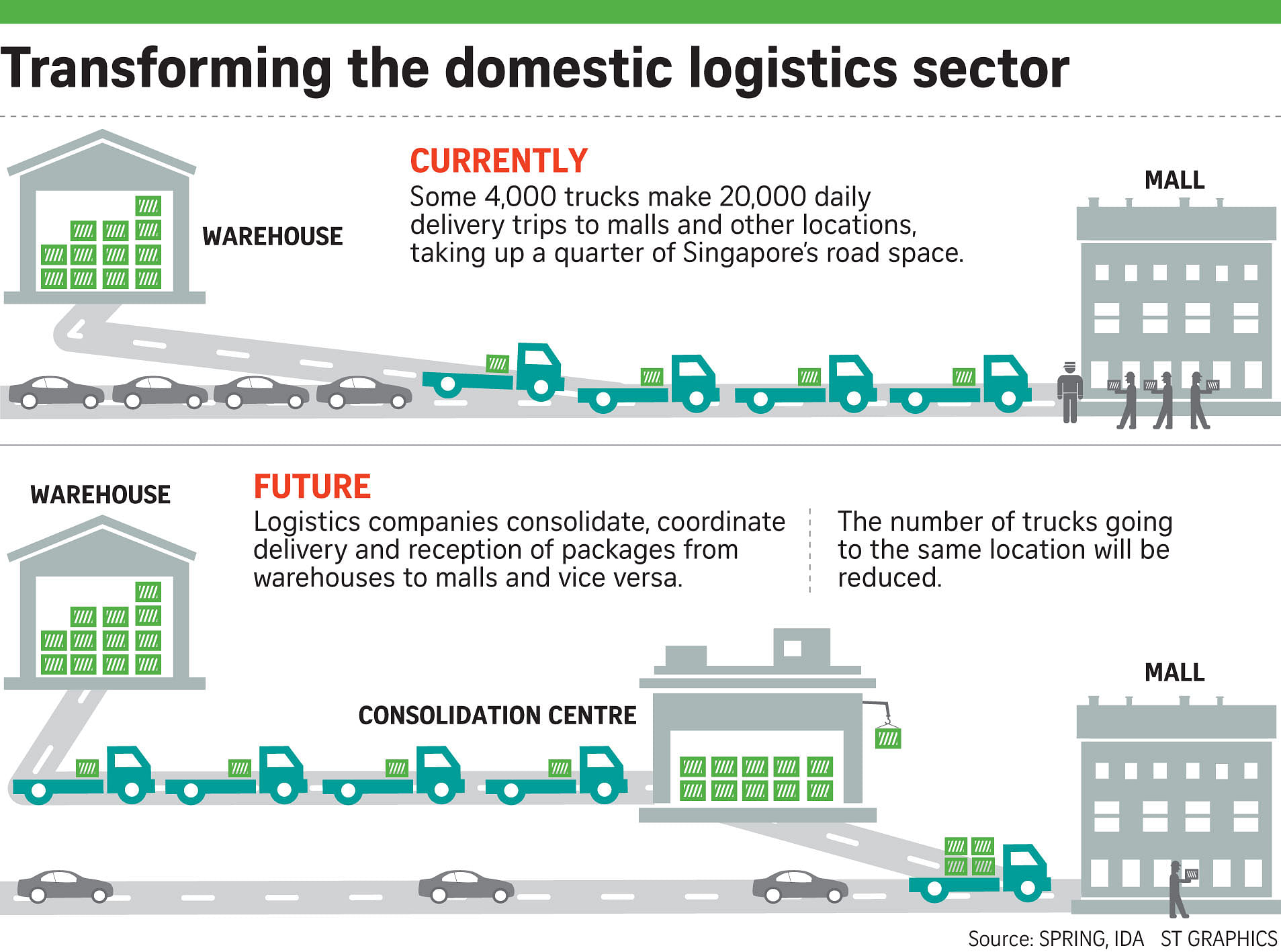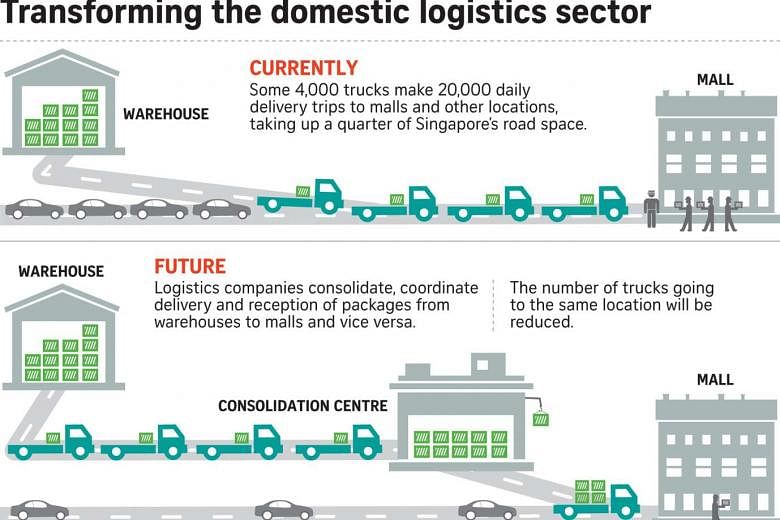A slate of measures to boost Singapore's logistics industry were unveiled yesterday, including a pilot programme to make deliveries to shopping malls more efficient.
These moves will inject a much-needed dose of technology into the domestic logistics sector and help firms cope more effectively with land and labour constraints, Deputy Prime Minister Tharman Shanmugaratnam said yesterday.
He was speaking at a gala dinner to celebrate the 60th anniversary of logistics firm YCH.
The company was founded in 1955 as a passenger transport company called Yap Chwee Hock Transport and General Contractors, and has since grown into a major regional logistics player with facilities and warehouses in more than 100 locations across the Asia-Pacific region.
The minister announced a range of government-supported initiatives to boost Singapore's logistics sector at last night's event.
The first is a $20 million pilot project to use technology to consolidate and coordinate deliveries to shopping malls.
Singapore boasts an estimated 4,000 trucks, running more than 20,000 delivery trips daily and taking up about 25 per cent of road space. Different trucks often deliver small cargo consignments to the same place, creating bottlenecks on roads outside malls. This causes difficulties for other road users, said Mr Tharman.
The project aims to cut the number of delivery trucks on the road by a quarter, and also reduce manpower required for deliveries by about 40 per cent. Waiting time for deliveries will also be slashed by two-thirds, he added.
The project will be piloted in two to three malls over the next year, and is expected to result in significant savings if scaled up to cover all of Singapore's 200-plus malls.
"We will transform today's inefficient domestic logistics sector - the system from the warehouse to the 'last mile' of delivery - through integrated, shared delivery systems," said Mr Tharman.
A second $15 million project, led by the Singapore Logistics Association, involves piloting automated vehicles in warehouses, to reduce repetitive storage and retrieval work.
The third initiative, being developed by the Singapore Transport Association, is an industry chassis pool, to help local truckers better manage resources and rising costs.
The chassis pool will encourage companies to size their chassis fleets according to their typical utilisation needs, and tap the chassis pool in times of peak demand, said Mr Tharman. The first chassis pool will be launched within the next two years, with an eventual goal of having multiple pools to serve truckers across the island.

In addition to these projects, the Government is also working with the industry to develop the next generation of logistics talent, said Mr Tharman.
The sector now faces a high attrition rate and has a large proportion of low-skilled jobs. As technologies such as robotics and autonomous vehicles become increasingly widespread, however, logistics jobs will demand more specialised skills, the minister noted.
Singapore's air and sea port infrastructure will also get a boost with the expansion of Changi Airport, the development of Tuas port, as well as the growth of associated industries like aerospace.
Besides hard infrastructure, software systems which support logistics are also being enhanced, said Mr Tharman.
Mr Robert Yap, the chairman of YCH, said the company's new corporate headquarters in Jurong West, due to be completed next year, will incorporate research and training facilities, and supply chain management technologies such as drones and robotic arms.
The company has also pledged to train 600 people for the logistics sector over the next three years at its supply chain academy located within the new headquarters.


